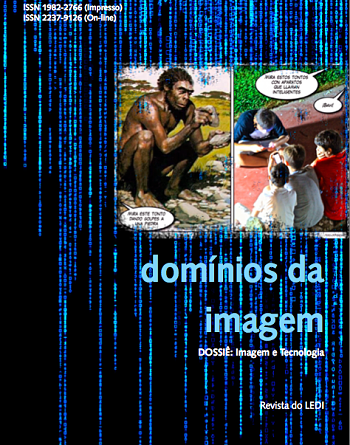"I sang, how cruel it is to sing like this": gender issues at the song festivals (1965-1972)
DOI:
https://doi.org/10.5433/2237-9126.2014v8n14p86Keywords:
Gender, Technology, Music, Television, Festivals of Song.Abstract
The purpose of this article is to analyze gender relations and media on the Festivals of Song realized in Brazilian television between the years 1965 and 1972 in several televised channels. The main focus will be given to International Festivals Rede Globo, though the analysis also reaches festivals of others channels. The Festival of Song, or the Festivals, have special significance because they occurred in a short space of time, but nevertheless, are a component in an important phase in Brazilian history, the period of the military dictatorship. They also have in their time characteristic the fact to have permeated the changes caused by Institutional Act No. 5 (IA - 5) that formalized the military regime as a sensor and coercive government, in anther words, a dictatorship. The television festivals emerge as a space in which power relations occurred nonlinearly related to the female and the traditional role that a socio-historical representation imposes for women: associated with sentimental sphere and home space. These both with regard to the power relationship between the artists and the political relationship with the military. On the one hand, this space reflects the majority male presence in various sectors of the television and music industry, with an overwhelming number of men in the presentation and even mostly in musical composition. On the other hand, demonstrates the current social contradictions: the rise of the feminist movement, extolling the symbolic action of female participation, usually favorite to bring his songs, written generally by men, to the top awardsin these festivals, and in a context of repression they suffered specifics military sensors that were ever vigilant of the "dangers" posed by female sexual liberation, according to "moral values" of these time.Downloads
References
ARAÚJO, P.C. Eu não sou cachorro, não: música popular cafona e ditadura militar, Record: Rio de Janeiro, 2003.
BARBOSA, S. C. Nem "umas" nem "outras", todas... a representação da mulher na MPB na década de 1970 In: Linhas: Revista do Programa de Mestrado em Educação e Cultura/ UDESC -Florianópolis: UDESC, v.1, n.1, jan/jun (2004).
BERLINCK, M. T. CPC: Centro Popular de Cultura UNE, Campinas: Vozes, 1984.
BERRINI, B. Utopia, utopias: visitando poemas de Gonçalves Dias e Manuel Bandeira, São Paulo: EDUC, 1997.
CANCLINI, N. G. Culturas Híbridas, São Paulo: Edusp, 1998.
COSTA, SIMÔES e KEHL Um país no ar: história da TV brasileira em 3 canais, São Paulo: Brasiliense, 1986.
DIAS, M. T. Os Donos da Voz: indústria fonográfica brasileira e mundialização da cultura, São Paulo: Boitempo, 2000.
HOLLANDA, H. B. impressões de viagem: cpc, vanguarda e desbunde: 1960/70, São Paulo: Brasiliense, 1981.
MELLO, Z. H. A Era dos Festivais: uma parábola, São Paulo: Ed. 34, 2003.
MIRA, M. C. O masculino e o feminino nas narrativas da cultura de massa ou o deslocamento do olhar, p. 38, In: PAGU-Núcleo de Estudos de Gênero, Universidade Estadual de Campinas: Campinas, 2003.
MORELLI, R. Indústria Fonográfica: um estudo antropológico, Campinas: Ed. Unicamp, 1991.
NAPOLINANO, M. Cultura brasileira: utopia e massificação(1950-1980), São Paulo: Contexto, 2001 - (Repensando a História).
NAPOLITANO, M. O conceito de "MPB" nos anos 60, In: História: Questões e Debates, Editora UFPR, ano 16, nº 31, jul/dez, 1999. P. 11-30.
NAPOLITANO, M. Seguindo a canção: engajamento político e indústria cultural na MPB - 1959-1969, São Paulo: Ana Blume, 2001b.
OLIVEIRA, S. C. irreverências mil pra noite do Brasil: Imagens do regime militar nas canções engajadas -dissertação de mestrado, Curitiba, 1998, UFPR.
OLIVEN, R. A mulher faz e desfaz o homem, In: Revista Ciência Hoje, V. 37, nº 37, nov/1987.
ORTIZ, R. (org.), Telenovelas: história e produção, São Paulo: Brasiliense, 1989. ORTIZ, R. Cultura brasileira e identidade nacional, São Paulo: Brasiliense, 1986.
RIBEIRO, S. Prepare Seu Coração: a história dos grandes festivais, São Paulo: Geração Editorial, 2002.
SILVA, A. R. Sinal fechado: a música popular brasileira sob censura (1937-45/1969-78), Rio de Janeiro: Obra Aberta, 1994.
VILARINO, R. C. A MPB em movimento: música, festivais e censura, São Paulo: Olho D'água, 1999.
Downloads
Published
How to Cite
Issue
Section
License
Copyright (c) 2014 Domínios da ImagemDomínios da Imagem adopts the Creative Commons Attribution 4.0 International License, therefore, the copyrights related to the published articles belong to the author(s), who grant the journal the exclusive right of first publication.
Under this license it is possible to: Share - copy and redistribute the material in any medium or format. Adapt - remix, transform, and build upon the material, giving due credit and providing a link to the license and indicating if changes were made.












 The works in this journal are licensed under Creative Commons .
The works in this journal are licensed under Creative Commons .